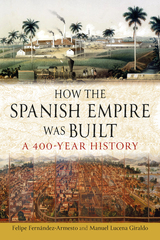5 start with H start with H
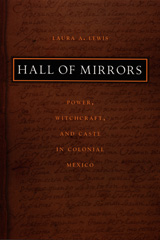
Using judicial records from a variety of colonial courts, Lewis highlights the ethnographic details of legal proceedings as she demonstrates how Indians, in particular, came to be the masters of witchcraft, a domain of power that drew on gendered and hegemonic caste distinctions to complicate the colonial hierarchy. She also reveals the ways in which blacks, mulattoes, and mestizos mediated between Spaniards and Indians, alternatively reinforcing Spanish authority and challenging it through alliances with Indians. Bringing to life colonial subjects as they testified about their experiences, Hall of Mirrors discloses a series of contradictions that complicate easy distinctions between subalterns and elites, resistance and power.
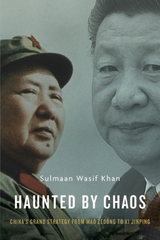
An American Interest Top Book of the Year
“Khan has unraveled the mystery of Chinese grand strategy, showing why insecurity lies at the root of Chinese power projection… Readers will not find a shrewder analysis as to why the Chinese act as they do.”
—Robert D. Kaplan, author of The Revenge of Geography
Before the Chinese Communist Party came to power, China lay broken and fragmented. Today it is a force on the global stage, and yet its leaders have continued to be haunted by the past. Drawing on an array of sources, Sulmaan Wasif Khan chronicles the grand strategies that have sought not only to protect China from aggression but also to ensure it would never again experience the powerlessness of the late Qing and Republican eras.
The dramatic variations in China’s modern history have obscured the commonality of purpose that binds the country’s leaders. Analyzing the calculus behind their decision making, Khan explores how they wove diplomatic, military, and economic power together to keep a fragile country safe in a world they saw as hostile. Dangerous and shrewd, Mao Zedong made China whole and succeeded in keeping it so, while the caustic, impatient Deng Xiaoping dragged China into the modern world. Jiang Zemin and Hu Jintao served as cautious custodians of the Deng legacy, but the powerful and deeply insecure Xi Jinping has shown an assertiveness that has raised both fear and hope across the globe.
For all their considerable costs, China’s grand strategies have been largely successful. But the country faces great challenges today. Its population is aging, its government is undermined by corruption, its neighbors are arming out of concern over its growing power, and environmental degradation threatens catastrophe. A question Haunted by Chaos raises is whether China’s time-tested approach can respond to the looming threats of the twenty-first century.
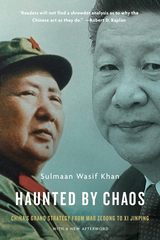
An American Interest Book of the Year
“Readers will not find a shrewder analysis as to why the Chinese act as they do.”
—Robert D. Kaplan
“An outstanding contribution to our understanding of that most urgent of contemporary geopolitical questions: what does China want?”
—Rana Mitter
Before the Chinese Communist Party came to power, China lay broken and fragmented. Today it dominates the global stage, and yet its leaders have continued to be haunted by the past. Analyzing the calculus behind decision making at the highest levels, Sulmaan Wasif Khan explores how China’s leaders have harnessed diplomatic, military, and economic power to keep a fragile country safe in a hostile world. At once shrewd and dangerous, Mao Zedong made China whole and succeeded in keeping it so while the caustic Deng Xiaoping dragged China into the modern world. Jiang Zemin and Hu Jintao were cautious custodians of Deng’s legacy, but Xi Jinping has shown a mounting assertiveness that has raised concern across the globe.
China’s grand strategies, while costly, have been largely successful. But will this time-tested approach be enough to tackle the looming threats of our age?
“Written with verve and insight, this will become the go-to book for anyone interested in the foundations of China’s grand strategy under Communist rule.”
—Odd Arne Westad, author of The Cold War
“Khan’s brilliant analysis will help policymakers understand the critical rise of China…Crucial if we are to avoid conflict with this emerging superpower.”
—Admiral James Stavridis, former Supreme Allied Commander of NATO
“Khan argues that since before the People’s Republic of China’s founding, Chinese rulers have held remarkably consistent objectives, even as their definition of security has expanded.”
—Mira Rapp-Hooper, War on the Rocks
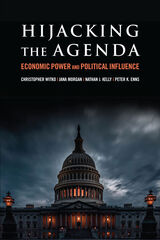
The authors analyze over 20 years of floor speeches by several hundred members of Congress to examine the influence of campaign contributions on how the national economic agenda is set in Congress. They find that legislators who received more money from business and professional associations were more likely to discuss the deficit and other upper-class priorities, while those who received more money from unions were more likely to discuss issues important to lower- and middle-class constituents, such as economic inequality and wages. This attention imbalance matters because issues discussed in Congress receive more direct legislative action, such as bill introductions and committee hearings. While unions use campaign contributions to push back against wealthy interests, spending by the wealthy dwarfs that of unions.
The authors use case studies analyzing financial regulation and the minimum wage to demonstrate how the financial influence of the wealthy enables them to advance their economic agenda. In each case, the authors examine the balance of structural power, or the power that comes from a person or company’s position in the economy, and kinetic power, the power that comes from the ability to mobilize organizational and financial resources in the policy process. The authors show how big business uses its structural power and resources to effect policy change in Congress, as when the financial industry sought deregulation in the late 1990s, resulting in the passage of a bill eviscerating New Deal financial regulations. Likewise, when business interests want to preserve the policy status quo, it uses its power to keep issues off of the agenda, as when inflation eats into the minimum wage and its declining purchasing power leaves low-wage workers in poverty. Although groups representing lower- and middle-class interests, particularly unions, can use their resources to shape policy responses if conditions are right, they lack structural power and suffer significant resource disadvantages. As a result, wealthy interests have the upper hand in shaping the policy process, simply due to their pivotal position in the economy and the resulting perception that policies beneficial to business are beneficial for everyone.
Hijacking the Agenda is an illuminating account of the way economic power operates through the congressional agenda and policy process to privilege the interests of the wealthy and marks a major step forward in our understanding of the politics of inequality.
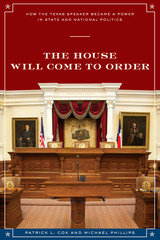
In a state assumed to have a constitutionally weak governor, the Speaker of the Texas House wields enormous power, with the ability to almost single-handedly dictate the legislative agenda. The House Will Come to Order charts the evolution of the Speaker's role from a relatively obscure office to one of the most powerful in the state. This fascinating account, drawn from the Briscoe Center's oral history project on the former Speakers, is the story of transition, modernization, and power struggles.
Weaving a compelling story of scandal, service, and opportunity, Patrick Cox and Michael Phillips describe the divisions within the traditional Democratic Party, the ascendance of Republicans, and how Texas business, agriculture, and media shaped perceptions of officeholders. While the governor and lieutenant governor wielded their power, the authors show how the modern Texas House Speaker built an office of equal power as the state became more complex and diverse. The authors also explore how race, class, and gender affected this transition as they explain the importance of the office in Texas and the impact the state's Speakers have had on national politics.
At the apex of its power, the Texas House Speaker's role at last receives the critical consideration it deserves.
READERS
Browse our collection.
PUBLISHERS
See BiblioVault's publisher services.
STUDENT SERVICES
Files for college accessibility offices.
UChicago Accessibility Resources
home | accessibility | search | about | contact us
BiblioVault ® 2001 - 2024
The University of Chicago Press





